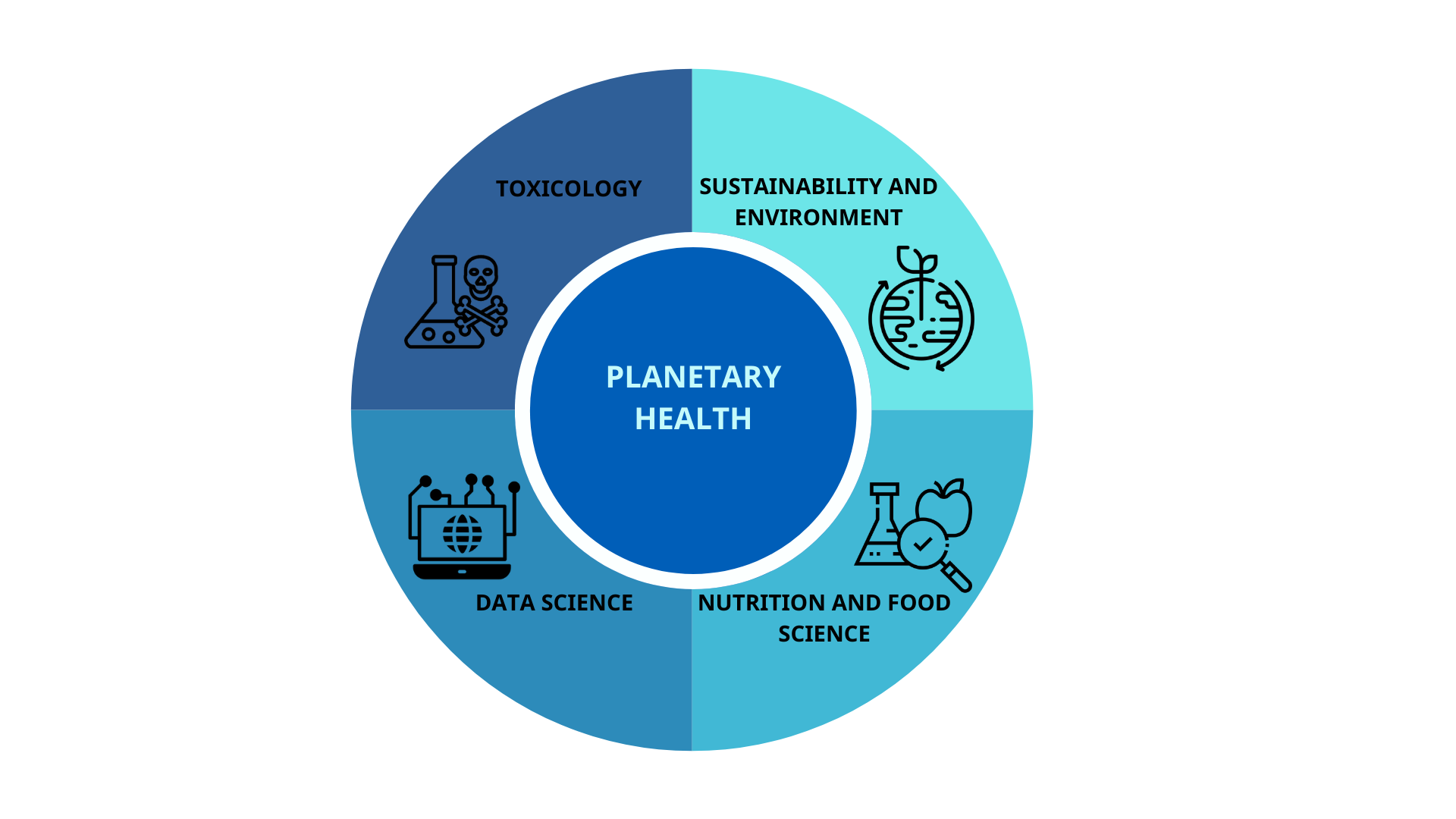TecnATox research is structured in 4 programs:

Sustainability and environment
Line 1. Support ecological transition for planetary health
- Reliable systems for the detection of fugitive emissions during the generation, emission, distribution and consumption of ecological fuels, such as ammonia and hydrogen
- New types of decisions for longer term environmental risk assessments and more in-depth and reliable nutritional recommendations
- Selective and affordable detection technologies for controlling air quality and occupational exposure
Line 2. Circular economy for food
- High-value compounds to help to improve health
- Scientific evidence that supports the consumption of seasonal fruits and vegetables, which implies that these continue to be produced locally (km0), to achieve better health and prevention of diseases.
- New technological detection techniques to evaluate the beneficial effects on health derived from the principles of circular economy applied to foodsNew sustainable strategies to formulate components derived from foods with health benefits
Toxicology
Line 1. Effects of air pollution, food contaminants and chemicals, micro and nanoplastics or ionizing radiation at low doses on nervous, endocrine, immune and cerebrovascular functions.
Line 2. Characterization of animal models to test the paper of pharmacological and toxic effects on cognitive, social and emotional alteration.
Line 3. New Approach Methodologies (NAM), with pharmacokinetic/pharmacodynamic models (PBPK/PD) and physiologically based systems biology, for the evaluation of toxicity and the development of alternatives for proven both animals.
Line 4. Human biomonitoring of chemical toxins and radionuclides for exposure and risk assessment
Nutrition and food science
Line 1. Impact of the exposome on human health
- Tools (methodological, technological, data analytics) to study the effects of the exposome in health maintenance and disease prevention
- Novel disease biomarkers through multi-omics integration, to better capture the nature of complex diseases
- Role of the exposome in diseases and their progression
- Biological rhythms, mental health and metabolic diseases
Line 2. Design and implementation of sustainable preventive and therapeutic nutritional strategies to improve human health
- New methodologies (i.e. new in vitro systems and animal models such as Caenorhabditis elegans, among others) and functionalities such as cognitive enhancement to obtain, identify and validate bioactive compounds using the Bio4health platform, prioritizing food waste and sources of agri-food by-products
- Importance of chronobiology in the effectiveness of dietary interventions
- Effects of the new eco-sustainable reformulations on health Bioactive compounds as modulators of biological rhythms
- miRNA-based therapies for the management of cognitive decline and dementia, with potential to extend to other diseases
Data science
Line 1. Multi-criteria decision support systems considering uncertainty in one or multiple scenarios
Line 2. Knowledge discovery systems based on data mining
Line 3. Medical image analysis systems and computational modeling for prevention in medicine
Line 4. Personalized medical care support and health monitoring systems based on the Internet of Medical Things (IoMT)
